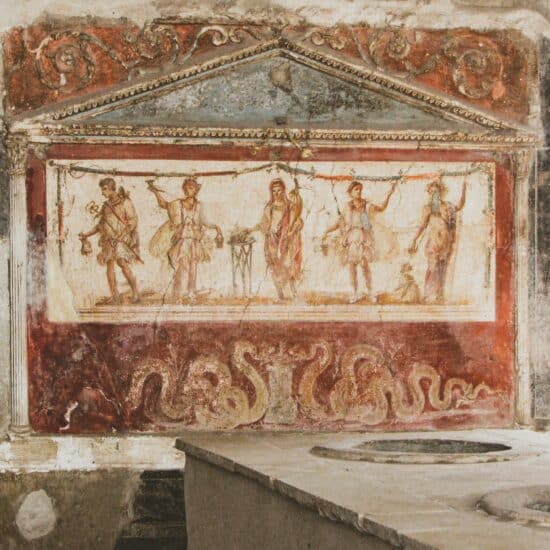 Freedom from the Law
Freedom from the Law
Formations: March 17, 2019
Scripture: Romans 7:1-13

Michael K Olmsted
Paul is sharing his personal story of how he found a new life within God’s grace instead of endless rule-keeping and rituals. How does he tell it?
Don’t be perturbed that Paul uses images and ideas out of Judaism; after all, the gospel of Jesus Christ is the culmination of what God did in the history of his chosen people. We begin with an analogy of marriage showing that in Christ we are now free from the law (vv. 1-3). A married woman is bound to her husband as long as he is alive, but when he dies she is free from that legal estate and may marry someone else. Paul makes his application: “In the same way, my friends, you have died to the law through the body of Christ, so that you may belong to another, to him who has been raised from the dead in order that we may bear fruit for God” (v. 4). Note his description of this new life results in serving God, not just gaining a privileged status. This is not a parable, but a statement that God’s people are bound to God by faith rather than a law that has fulfilled its purpose.
Paul further clarifies: “You have died to the law through the body of Christ, so that you may belong to another, to him who has been raised from the dead” (v. 4). This idea is at the center of Paul’s personal story. He was a Jew devoted to studying the law (Acts 22:3) until he came face-to-face with a vision of the risen Christ on the road to Damascus (Acts 9:1-16).
The earliest days of the church were marked by a struggle between Jews who followed Christ, often in their synagogues, and Gentiles who turned away from pagan beliefs but were strangers to Jewish history and religious traditions. Paul worked very hard at eliminating that cultural divide so that the church in Judea and the church in the Roman provinces could become one in faith.
Paul knew the attraction of legalistic religion in which a person can feel satisfaction and even superiority when faith is measured by sacrifices offered, checking off boxes of behavior and events, and tallying the points. Law can be alluring, but no law can replace faith that transforms the heart and motivations. God’s grace frees us from our failures, while it also reshapes our motives and actions. Paul describes the human desire to earn God’s favor as “our sinful passions, aroused by the law, were at work in our members to bear fruit for death” (v. 5).
He declares that in Christ “we are now discharged from the law, dead to that which held us captive, so that we are slaves not under the old written code but in the new life of the Spirit” (v. 6). The law served the purpose of showing us our weaknesses and flawed motivations and pointing us to a new kind of living within God’s grace. Can you hear the joy in Paul’s words as he calls us to the freedom of Christ? “For freedom Christ has set us free. Stand firm, therefore, and do not submit again to the yoke of slavery” (Galatians 1:1).
The scribes and Pharisees hounded Jesus as he spoke of faith beyond religious rule-keeping. We are not slaves but the children of God. We would not have understood what sin is, Paul says, if it were not for the law (vv. 7-8). But that knowledge helps all of us understand our need for God’s love (vv. 9-12).
I remember as a child my mother punishing me when I did something wrong, but there was always a clear explanation of why my behavior was wrong. God’s law points out the wrong, but it also points us to better living. “So the law is holy, and the commandment is holy and just and good” (v. 12). But the commandment does not have the power to change your heart. Only God’s love can do that!
Listen to Paul and do not dismiss the law as a destructive negative force. Children learn by precept and experience. For Paul the law was the schoolmaster, teaching Israel how to live as God’s people, reminding them that every day was an opportunity to grow in faith and model a different life to the world. As he explains in Galatians 3:24: “The law has become our tutor to lead us to Christ, that we may be justified by faith.”
Paul uses himself as an example, explaining he would not have known what it means to covet outside the law’s prohibition (v. 7). He also says learning the meaning of covetousness can urge us to the doing (v. 8). Remember the story of Adam and Eve, when they chose to eat the forbidden fruit in Eden? God said no! Satan said yes! Eve and Adam learned the hard way by their choice. Laws, rules and prohibitions are open to interpretation; in other words, “What do you want?” But when you stop and pay attention, there is a better way – the way of life.
Paul grew up in a world where God was real and every facet of his life was shaped by God’s law. He found security in the promise and history of his people. But in the middle of his security there was something missing, something beyond rules and rituals.
What changed that religious man’s life so drastically that he took a new direction in faith? Was it the love and passion of those early Christians? Was it the oppressive darkness of his world? Was it the relentless burden of the law? Was it a longing for something more from God? Whatever the reason for Paul’s conversion, we know the evidence of God’s love in Jesus Christ, the devotion of those early Christians and a vision of the risen Christ opened his heart to God’s grace and hope. The law is not the answer, but it offers a framework, a foundation that points us to a new way to live, not alone in the circumstances of our imperfect world but in the grace and companionship of the God who sent his Son to say “I love you!”
We are living in a world of ugliness and conflict. Some who profess to believe in God are acting and speaking out of anger, immorality and selfishness. The answer our society desperately needs can only be found in the grace of God through Jesus Christ. May the same grace that turned the life of Paul in a new direction be evident in our lives and society.
Formations is a curriculum series from Smyth & Helwys Publishing, Inc. through NextSunday Resources.
The PDF download requires the free Acrobat Reader program. It can be downloaded and installed at https://get.adobe.com/reader (uncheck optional offers first).



